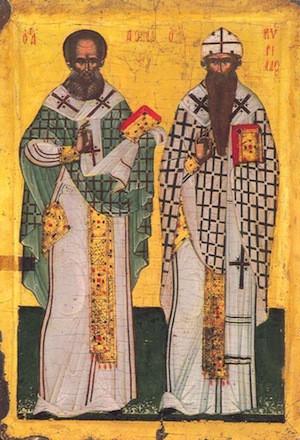 Our Holy Fathers Athanasius and Cyril, Archbishops of Alexandria are honored by the Church today.
Our Holy Fathers Athanasius and Cyril, Archbishops of Alexandria are honored by the Church today.
Our Holy Father Athanasius (whose name means “Resurrection”) was the architect of the Council of Nicea. He was a pillar of the truth of Christ, showing that Jesus is the Word of God, that “all things came to be through him, and without him nothing came to be. What came to be through him was life, and this life was the light of the human race; the light shines in the darkness, and the darkness has not overcome it. (John 1:3-5)” In this way, he teaches us what really happens in our baptism, we are deified, so that by sharing in the death of Christ through baptism, we share also in his glory and resurrection. St. Athanasius, therefore, explained clearly and simply what is found in Scripture: “For the Son of God became man so that we might become God” (De inc. 54, 3: PG 25, 192B.)
We should not make a fundamental mistake about deification, that, because of our faulty ideas about God’s omnipotence and omniscience, we should become proud and over-bearing, as if this were to imitate God. Instead, God revealed humility in becoming a human being, and he displayed infinite love in laying down his life for our sakes. The true God-like person, then, would be humble, patient, compassionate and loving. That is what it truly means to be a baptized Christian, an authentic follower of Christ.
Meditation by Archpriest David Petras
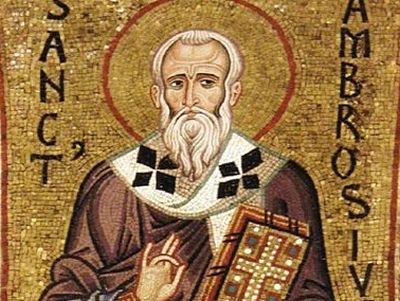 St. Ambrose was the greatest Archbishop of Milan, at a time when it was the center of the Empire. He was elected bishop when he was still a catechumen and proved to be most competent—in administration as well as theology, and was a holy and sincere Christian. He had been a governor before and knew how “to talk to power.” When the Emperor Theodosius had 7,000 Thessalonians slaughtered over the assassination of their governor, he excommunicated him for his horrendous crime – and made it stick, bringing Theodosius to repentance.
St. Ambrose was the greatest Archbishop of Milan, at a time when it was the center of the Empire. He was elected bishop when he was still a catechumen and proved to be most competent—in administration as well as theology, and was a holy and sincere Christian. He had been a governor before and knew how “to talk to power.” When the Emperor Theodosius had 7,000 Thessalonians slaughtered over the assassination of their governor, he excommunicated him for his horrendous crime – and made it stick, bringing Theodosius to repentance.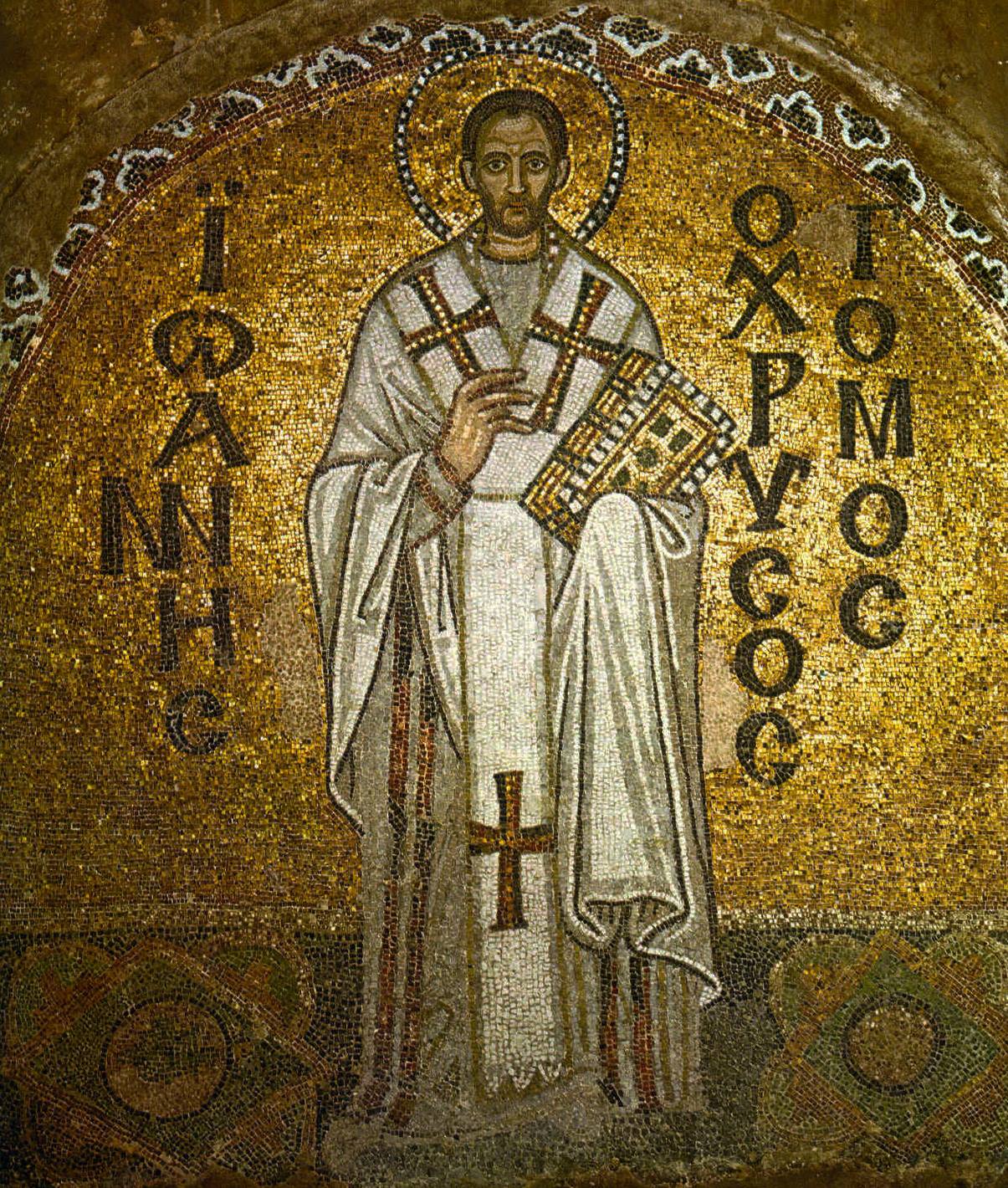 Today is the feast of Our Holy Father, Saint John Chrysostom, Archbishop of Constantinople, whose Divine Liturgy we pray most often. He is one of the most famous saints of both the Greek and the Latin Churches and one of the four great Doctors of the East. He is called “Golden-Tongued” because of his eloquence.
Today is the feast of Our Holy Father, Saint John Chrysostom, Archbishop of Constantinople, whose Divine Liturgy we pray most often. He is one of the most famous saints of both the Greek and the Latin Churches and one of the four great Doctors of the East. He is called “Golden-Tongued” because of his eloquence.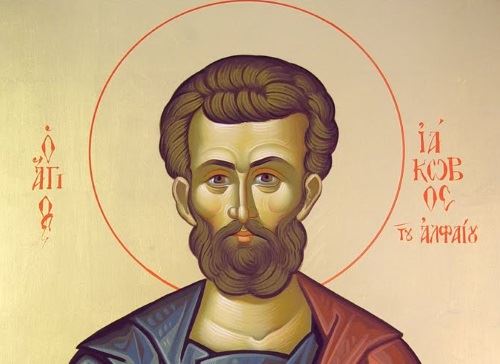 The Byzantine Church discerns three apostles named James: James the Greater, the son of Zebedee; James, the Brother of the Lord and first bishop of Jerusalem; and James, the son of Alphaeus. We celebrate the feast of the latter today. He is the James about which we know the least. The only mention of him was in the lists of the Twelve Apostles. Some speculate that he was the James mentioned by St. Paul in 1 Corinthians 15:7, “After that he appeared to James, then to all the apostles,” but commentators even doubt that was this James, also called “James the Lesser.” However, it does point to the mission of the apostles, which was to proclaim the risen Lord, a message which has resounded throughout the ages to this very day.
The Byzantine Church discerns three apostles named James: James the Greater, the son of Zebedee; James, the Brother of the Lord and first bishop of Jerusalem; and James, the son of Alphaeus. We celebrate the feast of the latter today. He is the James about which we know the least. The only mention of him was in the lists of the Twelve Apostles. Some speculate that he was the James mentioned by St. Paul in 1 Corinthians 15:7, “After that he appeared to James, then to all the apostles,” but commentators even doubt that was this James, also called “James the Lesser.” However, it does point to the mission of the apostles, which was to proclaim the risen Lord, a message which has resounded throughout the ages to this very day.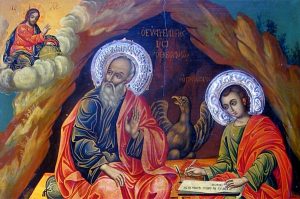 Today, September 26 is the Feast of the Falling Asleep of the Beloved Apostle, John the Evangelist and Theologian
Today, September 26 is the Feast of the Falling Asleep of the Beloved Apostle, John the Evangelist and Theologian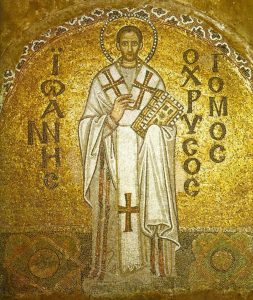 Today, the Church remembers that on September 14, 407, St. John Chrysostom fell asleep in the Lord.
Today, the Church remembers that on September 14, 407, St. John Chrysostom fell asleep in the Lord.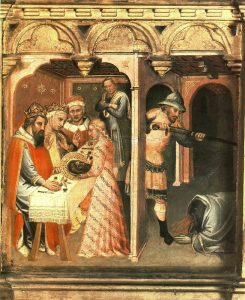 Today is the feast of the beheading of St. John the Forerunner and Baptist.
Today is the feast of the beheading of St. John the Forerunner and Baptist.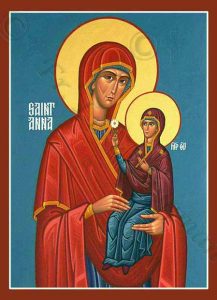
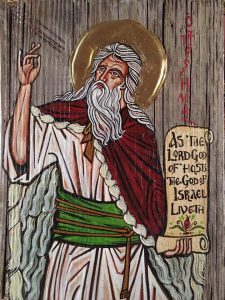 Today the Byzantine Church honors the memory of The Holy Great Prophet Elijah.
Today the Byzantine Church honors the memory of The Holy Great Prophet Elijah.